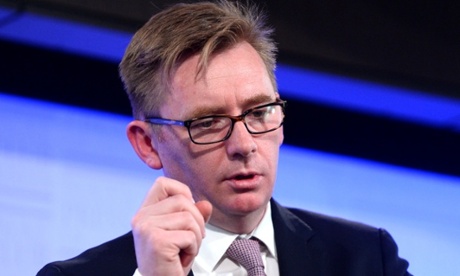Brian Owler says additional $7m in Ebola aid should be bolstered by deployment of Australian health workers

Australia’s contribution to fighting the Ebola virus is still inadequate despite the promise of another $7m, the head of the Australian Medical Association has warned.
Brian Owler said last week that the government’s commitment of $1m to the World Health Organisation to control the outbreak in west Africa was inadequate, and on Wednesday the government pledged an extra $7m.
WHO and Médecins Sans Frontières will each receive $2.5m, while $2m will be given to Britain to help combat the disease in Sierra Leone, the foreign minister, Julie Bishop, said.
But Owler said the extra $7m was still not enough compared with support being offered by the US and UK.
While he welcomed the extra funding, Owler said Australia urgently needed to coordinate the deployment of volunteer doctors and other health professionals to west Africa, and provide protective and medical equipment and supplies, transport and accommodation.
“The Ebola outbreak is at epidemic proportions, and growing at an alarming rate,” he said in a statement. “Australia must step up its efforts as part of the international response to provide care and save lives in west Africa, and stop the deadly Ebola virus from spreading to other parts of the world, including Australia.”
There are 4,985 confirmed cases of Ebola infection in the current crisis, and 2461 deaths.
It prompted the US on Wednesday to assign 3,000 of its military personnel to the affected areas, train health workers, and supply medical and logistical support in the form of healthcare facilities and beds.
“The UK is coordinating the deployment of frontline medical services and equipment, China is sending medical and health workers and laboratory services, and Cuba has promised to send more than 160 health workers,” Owler said.
“Australia must step up its efforts as part of the international response to provide care and save lives in west Africa, and stop the deadly Ebola virus from spreading to other parts of the world, including Australia.”
On Wednesday the United Nations said $1bn was needed to contain the epidemic affecting across Guinea, Liberia and Sierra Leone.
The WHO has estimated up to 20,000 could be infected by the end of the year if the haemorrhagic virus is not contained.
Dr Grant Hill-Cawthorne, a researcher with the Marie Bashir institute for infectious diseases and biosecurity at the University of Sydney, said Australia had an obligation to help curb the crisis.
Eight million did not sound like a lot of money to commit to the Ebola response, he said.
“Sending medical staff would be a good way for our doctors to get experience in these situations and treat the disease just in case it comes to Australia,” he said. “Though Australia faces a very low risk even if it does come here as we are very prepared and have a strong health system, as we saw with the suspected case last week.”
In a perspective piece on Ebola he co-authored for the Medical Journal of Australia, Hill-Cawthorne wrote the risk to Australia was small.
The risk to areas outside west Africa comes from spread via infected travellers, however, “Australia is well prepared for such a possibility”, the piece said.
“While Ebola virus is a scary proposition, with good infection control and vigilant health authorities, outbreaks will not occur in this country.”
The federal Department of Health had provided extensive guidance on recognising and treating the diseases, and state departments had issued risk assessment guidelines and management plans.
But associate professor Sanjaya Senanayake,a practising infectious diseases physician at the Australian National University medical school, said it was clear the international community was struggling to get on top of the outbreak overseas.
“So now the US is asking the international community to step up, especially France and Britain who have colonial links with the major countries involved,” he said.
“The biggest and best way to reduce the threat to us is to control it in west Africa. I think the longer the outbreak goes on, the more the risk increases of it entering Australia.”
